
At SHSMD, we’re proud to spotlight the inspiring journeys of professionals shaping the future of health care strategy. These member stories highlight the passion, creativity, and resilience that drive our field forward—from rural hospitals to national organizations. Meet the marketers, strategists, and innovators behind the work, and discover how SHSMD has supported their growth, connection, and success.
Know someone whose story should be featured? Nominate a SHSMD member by emailing kbrandon@aha.org.
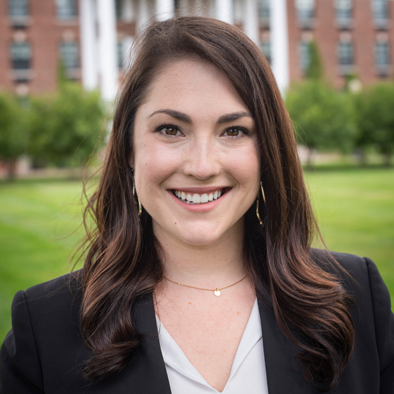
Rachel Lott
“The overwhelming sense of purpose and determination I had during that time is what cemented my career in health care.”
Read Full Spotlight
What initially drew you to the health care field?
I have always been very purpose-oriented, and one of my biggest motivations in my career has always been the bigger picture and outcome of my work or that of my organization. So, when an opportunity to work in healthcare came up early on in my career, it was a no-brainer! Of course, the longer I worked in the field, the more meaningful my work became as I began to understand and witness the impact of healthcare organizations on their communities--particularly in the rural space.
Can you share a defining moment or key experience that shaped your career path in this field?
After a two-year stint at a rural hospital early in my career ended due to a move across the state, I spent a few years working in economic development and then consulting for small business, communities and military/defense contractors. An opportunity to work in healthcare presented itself and I jumped back in during the summer of 2019. As we all know, the pandemic hit in early 2020 and those first several months were so tough, sometimes working 18-hour days and basically living at the hospital, something changed in me. For one, my confidence in my skills, my leadership and the work I was doing increased. At the same time, the bond between our team members strengthened and our hospital's relationship with our community did as well. The overwhelming sense of purpose and determination I had during that time is what cemented my career in the healthcare industry.
Which of your professional accomplishments are you most proud of, and why?
When I was at Hillsdale Hospital, CEO JJ Hodshire and I co-created and co-hosted Rural Health Rising, a podcast on the healthcare challenges, success and opportunities facing rural America. Even though we didn't really know how it would go, we wanted to introduce a new voice into the conversation about rural health. We were interviewing and connecting with leaders across the country who in some way had a stake in rural health, but doing so from the perspective of an independent rural hospital living the daily fight to remain strong despite our challenges. That was in November 2020 and by the time I left Hillsdale four years later, we had published an episode every week since we started (sans 2 or 3 holiday weeks) and we had listeners nationwide. Less than a year in, we had healthcare experts begin reaching out to us to join us on the show. It was an incredible experience and it's also been a joy to see the team at Hillsdale reinvent the show (now known as Rural Health Today) and continue dropping weekly episodes in the feed even after my departure.
What skills or qualities do you believe have been most essential to your success in this profession?
Adaptability and curiosity. Understanding the broader practice of marketing communications has been the foundation of my career, certainly. That said, my ability to adapt to new situations and take on new challenges has helped me to continue to grow into the areas of strategic planning, advocacy, fundraising/development, patient experience, physician relations and more. In addition, my curiosity has helped me to think outside the box and encourage my colleagues to do so. In meetings and work sessions, especially when other departments and disciplines are involved, I have made a specific effort to listen for potential questions I want to ask rather than statements I can make. Sometimes a simple question about why something has been done a certain way or why we wouldn't try it a different way can spark a whole new path for the entire team. It also helps to position marketers as strategic partners with our colleagues who should be at the table in the C-Suite and the boardroom.
Has there been a mentor, colleague, or experience that has significantly influenced your career growth? How did they impact your journey?
JJ Hodshire, my CEO when I was at Hillsdale Hospital, without a doubt had a significant impact on my career growth. He trusted me as an expert in my field and was always ready to take on something new or unorthodox with me. He provided me with progressive leadership opportunity during my time there and in five short years helped me advance from a director role to Chief Communications Officer. He invited me and others on our executive team to disagree with him and to push back. Sometimes he won and sometimes we did! That really helped to build my confidence in my skillset, my instincts and what I'm capable of in my career.
What advice would you give to someone just starting their career in your field?
Never say no to the opportunity to learn and grow, especially in a new area that may be outside your education or experience to date. Taking on new roles and responsibilities has given me a unique skillset that allows me to work on projects with organizations of various sizes and positions within the healthcare industry. A colleague recently described me as a Swiss Army knife—a moniker I can only accept due to the variety of experiences I've had within my healthcare career to both plan and execute, while also venturing outside of the traditionally-defined marketing communications space.
What do you think is one of the industry trends or innovations you think will have the biggest impact on your field in the next five years?
AI is starting to show up in so many ways and in different areas of our work, from integrations into daily use tools like design software and media monitoring platforms to channels we use to reach consumers like search engines and social platforms. Understanding how to utilize AI to enhance and elevate our work will be critical to the success of healthcare strategists, marketers, communicators and connectors. It will be essential to recognize the areas in which AI can create challenges for us, like with the cannibalization of organic web traffic and the summarized mashups of patient education that satisfy users before they ever click on a healthcare provider's webpage. This shift in how we work and communicate will have a significant impact on shaping our field moving forward.
What resources, connections, or opportunities provided by SHSMD have been most valuable to you?
At my very first SHSMD conference, I attended the Healthcare Marketing Plans That Work pre-conference course and learned so much! I also met one of my now mentors, Suzanne Hendery of Renown Health, and many others who I am still connected with today. The relationships with those further along in their journey have given me confidence and stability, while relationships with those in similar roles and organizations as mine have given me support and inspired me to think big and think creatively as I've witnessed their excellent work. The SHSMD courses I've taken have helped me to grow my skills and knowledge base to keep me sharp. Volunteering on SHSMD committees has also been a great way to learn from others and build relationships throughout the year in between conferences.
How has your involvement with SHSMD contributed to your professional growth and success?
Without SHSMD, I think I would have felt a bit directionless in the first few years after I returned to the healthcare industry. Having education, networking and mentorship all at my fingertips has been invaluable!
What’s one fun fact about yourself?
I once jumped onto a moving train James Bond-style, because the Amtrak didn't actually stop at the station I was ticketed from--it just slowed down!
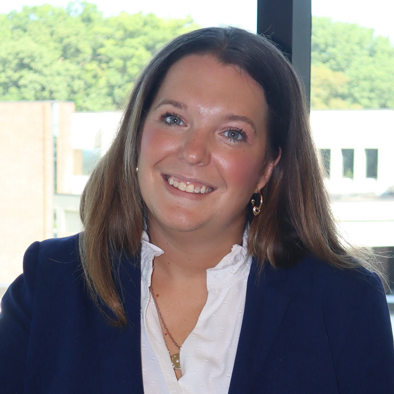
Khrista Boster
“It has forever inspired me to give 110% because we have a community counting on us for health care.”
Read Full Spotlight
What initially drew you to the health care field?
Healthcare has always fascinated me since I was a young child. I struggled with math and science in elementary school, so I thought I would not be able to pursue a career in healthcare. Years later, I discovered healthcare administration, and I have been passionate ever since.
Can you share a defining moment or key experience that shaped your career path in this field?
When I was in late elementary school, there was a neighbor's nephew that was hit by a car on a rural state route in rural Ohio, as he was riding his bike. I waited with my sister and mom as it took the ambulance 30 minutes to come and another 30 minutes to get to a regional hospital. I had no idea about access issues or social determinates of health but I saw the need for rural healthcare that day. Sadly, he passed away but his life has always had an impact on mine. Over 15 years later, I returned to the same county to work in the post-acute sector. I saw the same challenges facing the residents of this rural community. It has forever inspired me to give 110% because we have a community counting on us for healthcare.
Which of your professional accomplishments are you most proud of, and why?
I am so proud of my team at Woodlawn and what we have accomplished. Starting a strategic marketing program from scratch was exciting and challenging. Looking how far we have come in less than three years warms my heart. I could not have done it without the support of the c-suite, providers and directors who all pitch in with content. I am also very proud of our team and how we worked to managed to close the gap to outmigration through a strategic program. This has helped our rural health system and left us sustainable.
What skills or qualities do you believe have been most essential to your success in this profession?
Great Question! I believe learning to work together to build relationships throughout the organization is key to the marketing role. I also believe being tenacious and curious about what could possibly change.
Has there been a mentor, colleague, or experience that has significantly influenced your career growth? How did they impact your journey?
I had the honor to have Rose Glen as a mentor my first year back into the healthcare space. What I learned from her was invaluable! I also have had a wonderful mentor in my current supervisor, Alan Fisher, who gave me so many opportunities and projects to grow.
What advice would you give to someone just starting their career in your field?
Learn through osmosis and ask a lot of questions. What I have found in the healthcare space is professionals who want to make a difference and who are willing to teach. You have an opportunity to gain their knowledge by asking questions and observing.
What do you think is one of the industry trends or innovations you think will have the biggest impact on your field in the next five years?
I believe we have just tapped the surface of AI and I believe that will have an impact on our profession in the next five years.
What resources, connections, or opportunities provided by SHSMD have been most valuable to you?
SHSMD helped me find a mentor which was invaluable in my road back to working in healthcare and acute care. I have also gained many friendships through this organization that has helped me bother personally and professionally.
How has your involvement with SHSMD contributed to your professional growth and success?
SHSMD helps keep me up to date with the new trends in healthcare and proven strategies that work. Just because we are smaller, doesn't mean we can't take those best practices and scale them down to our organization for success. However, the greatest asset has been the relationships that I have built over the years of attending conferences and meet ups. I have learned and been challenged so many times by my peers.
What’s one fun fact about yourself?
I grew up in a business family and I have learned so much from my Dad, uncles and Grandpa over the years when it comes to soft skills.
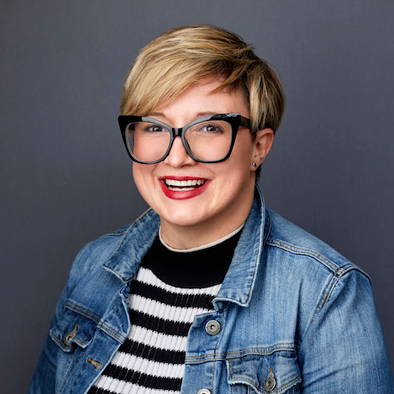
Lacey Reichwald
“We help people make the most important decisions of their lives.”
Read Full Spotlight
What initially drew you to the health care field?
Honestly, I wasn’t drawn to health care initially. My background is in food service and travel marketing. I came to love health care marketing through my role at Aha Media Group. What hooked me was the mission: We help people make the most important decisions of their lives. That line got me. Health care is deeply personal. It’s often emotional. And it can be overwhelming. The fact that our work brings clarity and comfort to people during moments of fear or uncertainty is what keeps me here. That’s what keeps me invested. Hospital marketers are doing such important, human work. I feel lucky to support them by sharing insights, creating resources, and hopefully making their jobs a little easier.
Can you share a defining moment or key experience that shaped your career path in this field?
When my mom was hospitalized with an arrhythmia, she was across the country from me — alone, scared, and confused about the procedure doctors had planned for the next day. She told me, “They said they’re going to jump-start my heart,” but she didn’t really understand what that meant. So I did what anyone would do: I Googled it. The first article I found was empathetic and easy to understand. I sent it to her, and it immediately eased her fear. She felt informed and comforted. And so did I. The next morning, I shared that story during our team stand-up and found out that one of our writers had authored that very article. That was the moment it all clicked into place for me. This is the impact of the work we do. That’s what made me fall in love with this work. (And I’m happy to share that my mom is doing much better now.)
Which of your professional accomplishments are you most proud of, and why?
One of the accomplishments I’m most proud of is earning the trust of my peers around the topic of AI. It’s a fast-moving space with a lot of uncertainty, and I’ve worked hard to stay grounded in real use cases and responsible applications (not hype), especially in health care marketing. That trust has opened doors for me to speak with clients and present at conferences, where I can share what I’ve learned and help others feel more confident navigating this ever-shifting scene. It’s incredibly rewarding to be part of those conversations and to support our industry in using AI in thoughtful, strategic ways.
What skills or qualities do you believe have been most essential to your success in this profession?
Loving people and being curious about them goes a long way in marketing. That probably stems from my restaurant days. There’s something deeply satisfying about serving others and seeing their reaction, making their day a little better. Being a fast learner helps, but so does being generous with what you learn. Marketing moves fast. The people who thrive tend to be the ones willing to test, adapt, and share what’s working. It’s not about having all the answers. It’s about staying curious, open, and helping others grow along the way.
Has there been a mentor, colleague, or experience that has significantly influenced your career growth? How did they impact your journey?
Absolutely. I’ve been lucky to have a few key people in my corner. The first is our CEO, Ahava. She’s taught me more than I can summarize here — not just about content strategy or health care marketing, but about how to lead and trust your own voice. She’s pushed me when I needed it and provided encouragement to take on new challenges. I also have a health care marketing bestie, Lauren Minors, who is my counterpart at another agency. She’s my go-to for gut checks, idea swaps, and “is this normal?” moments. Our experiences are similar enough to relate, but different enough to offer perspective. Everyone needs someone like that, who gets the work and reminds you to laugh along the way.
What advice would you give to someone just starting their career in your field?
Don’t wait to feel “ready.” You’ll learn faster by doing than by overthinking. Get curious, ask good questions, and surround yourself with people who are generous with what they know. Also, be a sponge. But don’t lose your own perspective. The best marketers I know are the ones who can learn from others while still trusting their gut. And share what you learn as you go. Marketing is a team sport, even across organizations. When one of us gets better, we all do. Oh, and document everything! Your future self will thank you.
What do you think is one of the industry trends or innovations you think will have the biggest impact on your field in the next five years?
AI is the obvious answer. But specifically, how it’s changing the way people search for health information. Tools like ChatGPT and Google’s AI Overviews are shifting behavior. People are asking different kinds of questions and expecting faster, clearer answers without ever clicking through to a website. As marketers, we need to respond to that shift. We need to think differently about how we structure content and how we show up in these new environments. If we don’t adapt, our content risks being invisible when someone is looking for help.
What resources, connections, or opportunities provided by SHSMD have been most valuable to you?
The people. Hands down. SHSMD Connections was the first health care conference I ever attended. I was immediately struck by how welcoming and supportive everyone was. That energy carries through into the online message boards, the regional groups, and casual conversations that turn into real friendships. Some of the most valuable takeaways haven’t come from formal sessions or “thought leaders.” They’ve come from spontaneous conversations with people facing the same challenges. That kind of access and openness is hard to find.
How has your involvement with SHSMD contributed to your professional growth and success?
My involvement with MASHSMD, the Mid-Atlantic regional chapter of SHSMD, has been the most meaningful part of my connection to the organization so far. Volunteering and serving on the board have helped me build strong relationships with other professionals in the region. It’s given me a broader perspective on the work we’re all doing and the confidence to grow into new roles.
What’s one fun fact about yourself?
I lived in a vintage RV with my family (pets included!) for 14 months. We sold our house, our cars — everything — and hit the road full-time with no home base. It was part road trip, part social experiment, and one of the best decisions we’ve ever made. After all that travel, we still felt that Wisconsin was the best place to call home, and we moved back.
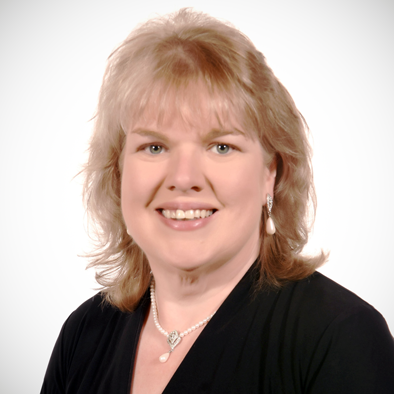
Amy Stevens
“To succeed in marketing and communications, you have to be an exceptional listener.”
Read Full Spotlight
What initially drew you to the health care field?
In the 1990s, I began my career as a newspaper reporter and found myself assigned to the health care beat. I became fascinated by health system operations and, when the local system called to offer me a job in marketing and communications, I happily accepted.
Can you share a defining moment or key experience that shaped your career path in this field?
From my first days at Wellmont Health System in Tennessee, I've never doubted this is what I'm meant to do. The experiences that have stayed with me are the patient stories. It's a sacred responsibility when someone trusts you to share the intimate details of their personal health journey, and I take that seriously.
Which of your professional accomplishments are you most proud of, and why?
Two come to mind. First was the opportunity to develop, launch and mature the Tidelands Health brand. Creating a new brand from scratch is a once-in-a-career opportunity for many of us, and the past 10 years since our brand launch have been an incredible journey. Second, and most significant, are the teams I've built at each career stop. My most important role as a leader is to hire, retain and mentor exemplary people, and I've been blessed to work with incredible professionals and great human beings.
What skills or qualities do you believe have been most essential to your success in this profession?
To succeed in marketing and communications, you have to be an exceptional listener. Our role is to create connections between our organization and the communities we serve, and you do that, first, by listening. We also have to be great translators. We take complex information and make it relevant and interesting to our audiences. That's where engagement happens.
Has there been a mentor, colleague, or experience that has significantly influenced your career growth? How did they impact your journey?
Like most everyone, I wouldn't be where i am today without people who have poured into me over the years. While there are so many who have supported my journey, I have to mention three by name. First was the late Eddie George, who was CEO of Wellmont Health System. He saw something in a brash, 20-something reporter and gave me the opportunity to be and do more. Second is Pat Kane, who was my VP at Wellmont. It's not an exaggeration to say Pat taught me health care marketing and communications. He's been an incredible mentor for many years now, and I find myself quoting him at least weekly. And, finally, there's Stuart Archer, who hired me at LHC Group. Stuart helped open my door into executive leadership, and he's still a dear colleague and friend.
What advice would you give to someone just starting their career in your field?
The most important thing is to understand this isn't just a job. While we as health care marketers aren't at the bedside or in the OR, the work we do can be the difference between life and death. When we make health information understandable and approachable, we remove barriers to care. And that can and does help save lives. Never take that lightly. Second, immerse yourself in health care. To truly communicate, we have to understand. Be a lifelong learner, and don't be afraid to ask questions. Your clinical and operations colleagues are tremendous sources of knowledge.
What do you think is one of the industry trends or innovations you think will have the biggest impact on your field in the next five years?
I think it's the continued emergence of the empowered health care consumer. Patients are no longer passive participants in their care. They're demanding more from us as health care organizations, and it's our job to deliver the accessibility, quality and experience consumers expect and deserve.
What resources, connections, or opportunities provided by SHSMD have been most valuable to you?
SHSMD is an incredible platform for connection. From virtual meetups to webinars to annual conference, SHSMD continually reinforces we as marketers aren't alone in this journey. SHSMD connects us to each other, and that's invaluable.
How has your involvement with SHSMD contributed to your professional growth and success?
I've been a SHSMD member since my earliest days in health care marketing and communications. As I've grown and matured, SHSMD has been relevant at every stage of my career. Today, as a SHSMD board member, I'm passionate about mentorship because I've been blessed by so many impactful mentors in my career.
What’s one fun fact about yourself?
My husband I love to travel. A trip to Antarctica a few years ago was truly life-changing. We love exploring this big, beautiful world of ours.
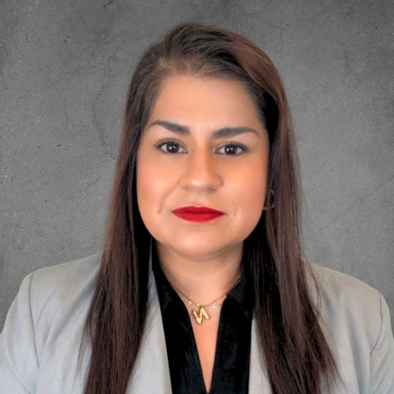
Nardeep Singh
“AI will transform health care by expanding access and democratizing information.”
Read Full Spotlight
What initially drew you to the health care field?
I’ve always been drawn to life sciences. I studied biology in college and stayed curious about how health, technology, and access intersect. I never imagined I’d work in healthcare, but once I got a chance to support life science and medical cannabis clients through consulting, I realized how much impact technology and communication have on patient care. That eventually led me to Renown Health, where I’ve been able to bring everything together, tech, marketing, service, and purpose.
Can you share a defining moment or key experience that shaped your career path in this field?
Getting my first opportunity in healthcare tech was a defining moment. My leader at Renown took a chance on me, and it opened up a space where I could lead with my full skill set. I came from hospitality and retail, fields where speed, service, and customer communication are everything. That experience shaped how I think: move fast, build systems that work, and make the user experience intuitive. It helped me bring a different lens to healthcare and build strong, functional digital tools that support patients and internal teams alike.
Which of your professional accomplishments are you most proud of, and why?
I’m most proud of the growth I’ve been able to support in the people I lead. Across industries, I’ve built teams where people feel empowered to try new things, speak up, and develop new skills. One standout moment was bringing someone from a previous team into Renown Health and watching her grow into her role, learn the tech, and recently get promoted. That kind of progress matters to me. I try to create a team culture that’s open, creative, and future-focused. I’m proud to lead a group that’s excited to keep learning, even when the pace of technology is fast and unpredictable. That energy drives our success.
What skills or qualities do you believe have been most essential to your success in this profession?
I lead with openness and trust, which helps me build teams that are motivated, collaborative, and willing to learn. I’m naturally curious and always experimenting with new tools or ideas. I communicate clearly across technical and non-technical teams, and I focus on execution, getting projects shipped, even when the path isn’t fully defined. Those qualities have helped me grow and adapt in healthcare, where change and complexity are constant.
Has there been a mentor, colleague, or experience that has significantly influenced your career growth? How did they impact your journey?
I’ve learned a lot from my current peers on the management team they’re excellent at what they do and lead with integrity. I’m also inspired by how my director and CMO support and empower us. They’re open to feedback, encourage ideas, and took a risk hiring someone like me with a nontraditional path. That experience has shaped how I lead now. I’ve tried to pay that forward by building a team of people with different backgrounds, giving them the same kind of support and trust
What advice would you give to someone just starting their career in your field?
Stay curious. The best people I’ve worked with didn’t come from perfect backgrounds, they just kept learning, building, and showing up. Also, document your work and share it. That builds trust and visibility.
What do you think is one of the industry trends or innovations you think will have the biggest impact on your field in the next five years?
AI will transform healthcare by expanding access and democratizing information. It has the potential to make complex medical knowledge more understandable and available; not just to clinicians and researchers, but to patients too. That shift empowers people to engage more deeply in their care. On the backend, AI will support medical research, streamline operations, and shift us from static automation to dynamic, real-time decision-making. That shift will change how we deliver care, communicate, and personalize services across the board.
What resources, connections, or opportunities provided by SHSMD have been most valuable to you?
The community. It’s helpful to hear how others are solving similar problems especially when you’re working on tech and digital projects in healthcare, which can feel niche. SHSMD helps surface shared challenges and emerging best practices.
How has your involvement with SHSMD contributed to your professional growth and success?
It’s helped me see the bigger picture of how strategy, planning, and communications come together in healthcare.
What’s one fun fact about yourself?
I have four dogs, and each one has a completely different personality. One’s a quiet observer, one’s the boss, one’s the goofball, and one is full of energy and absolutely wild. Living with them has taught me a lot about patience, structure, and finding humor in everyday chaos.
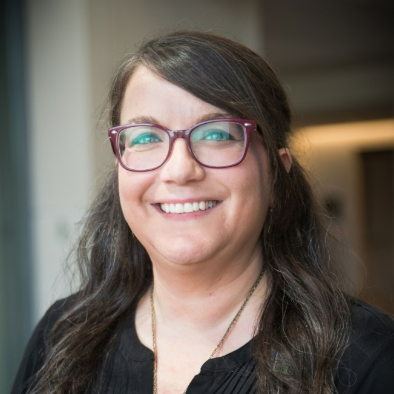
Dana Johnson-Perry
“Being curious, adaptable, and committed to always learning and growing have served me well throughout my career.”
Read Full Spotlight
What initially drew you to the health care field?
My mom worked as a medical technologist in a hospital blood bank for almost 40 years, and I grew up watching her dedication.
Can you share a defining moment or key experience that shaped your career path in this field?
My undergraduate degree is in English/Journalism and when I realized by working in healthcare marketing and communications, I could utilize not only my writing skills, but also my affinity for relationship building and quest for lifelong learning, I found my passion. It's very rewarding developing strategies to help people find the care they need and getting to shine a light on inspiring patients, life-changing outcomes and brilliant, dedicated clinicians.
Which of your professional accomplishments are you most proud of, and why?
Presenting at SHSMD in 2023 is pretty high on the list! I got to speak about developing a physician communications program from the ground up and I was proud of the research I did because physician communications are so important and it's an area where many healthcare systems struggle.
What skills or qualities do you believe have been most essential to your success in this profession?
Being curious, adaptable, and committed to always learning and growing have served me well throughout my career. The healthcare landscape is complex and continuously changing. We need to be growing, changing and innovating with it.
Has there been a mentor, colleague, or experience that has significantly influenced your career growth? How did they impact your journey?
My first boss, Heather Adkins (now SVP/CMO at UT Health San Antonio) was very influential in my early career years. I was so young and green starting out and she empowered me, fostering my ability to rise to any challenge and think on my feet.
What advice would you give to someone just starting their career in your field?
My biggest piece of advice to those starting out is to stay nimble. There are so many unique roles in healthcare marketing and communications, I highly recommending trying out a variety of them (even on a project-related basis) to see what interests you most. You never know what type of opportunities those experiences will lead to down the road. Plus, healthcare marcom teams are often lean, so being able to wear more than one hat is a valuable skill.
What do you think is one of the industry trends or innovations you think will have the biggest impact on your field in the next five years?
Love it or hate it, AI is the first thing that comes to mind and there are endless opportunities for its use in healthcare - early detection, personalized medicine, predictive analytics, helping streamline clinical workflows, enhancing patient experience and more.
What resources, connections, or opportunities provided by SHSMD have been most valuable to you?
I really like the resource library. It has everything from on-demand virtual webinars and past presentations to magazine/journal articles and white papers.
How has your involvement with SHSMD contributed to your professional growth and success?
I've had the privilege of serving on SHSMD's Education and Editorial Advisory Board since last year and it's been such a great way to connect with others across our industry and contribute to SHMD's educational offerings.
What’s one fun fact about yourself?
My wife and I are on a quest to visit all 30 MLB ballparks, and we have just six remaining!
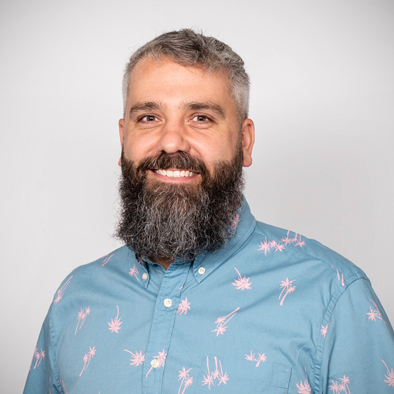
Drew Hardesty
“Being able to tell a story with empathy has helped us grow other health care organizations through their marketing.”
Read Full Spotlight
What initially drew you to the health care field?
I own a video production company and one of our first clients was a health care system in a nearby city. Being in that environment and seeing the compassion and care provided to patients really drew us to pursue more health care clients.
Can you share a defining moment or key experience that shaped your career path in this field?
Working with the marketing director at the health care system mentioned above greatly shaped the path of our video production company. She helped guide us through the complex web of health care marketing and gave us great ideas to pursue for video content.
Which of your professional accomplishments are you most proud of, and why?
I am most proud of the Telly Award we received for a health care marketing commercial production. It was our first big video production project and to see that it was accepted as a great piece of work was very gratifying.
What skills or qualities do you believe have been most essential to your success in this profession?
Everyone on our team is, by nature, an empath and being able to tell a story with empathy has helped us grow other health care organizations through their marketing.
Has there been a mentor, colleague, or experience that has significantly influenced your career growth? How did they impact your journey?
The marketing director mentioned above really took us under her wing and influenced our growth. She was patient with us, guided us through projects, and really helped us see the value in health care marketing from a video production point of view.
What advice would you give to someone just starting their career in your field?
The video production industry is centered on creativity so I would recommend to anyone pursuing this career to get out there and be creative, tell stories, and practice, practice, practice. All of the technical editing skills, production skills, etc. can be taught. Creativity is something that comes naturally.
What do you think is one of the industry trends or innovations you think will have the biggest impact on your field in the next five years?
Without a doubt, AI will have the biggest impact on health care video production. I recently joined the "We Are, Marketing Happy" podcast to talk about this subject. As of now, AI's place in health care video production is better served as a means to streamline the workflow of video production. Right now, AI doesn't have the empathy or compassion to tell a health care story but that is something that could improve over the years.
What resources, connections, or opportunities provided by SHSMD have been most valuable to you?
I recently exhibited at the SHSMD Connections conference in Denver and it was an extremely valuable resource for our business. I would venture to say no one there knew about our video production company but we have since built valuable relationships with several organizations because of that conference.
How has your involvement with SHSMD contributed to your professional growth and success?
We organically started working with health care organizations as our business grew but now, as we begin to specialize in health care video production, our involvement in SHSMD has greatly contributed to our growth. We would not have the many great relationships we have with several organizations if we had not joined SHSMD.
What’s one fun fact about yourself?
One fun fact about myself is I have a Master's Degree in Theology. Not many people know that and to most it is a surprise when they learn about it.
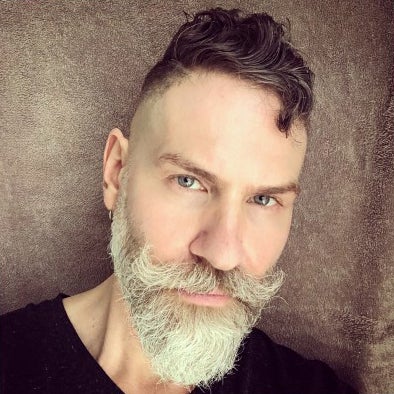
Dean James Ballas
“Keep fighting the good design fight!”
Read Full Spotlight
Number of Years with SHSMD: 1
What initially drew you to the health care field?
My design career journey reflects a profound commitment to leveraging design and creative superpowers for good, implementing innovative strategies to educate, engage and inspire both academic and broader community audiences.
Can you share a defining moment or key experience that shaped your career path in this field?
As a novice designer, I realized the messaging I put out in this world has the power to influence and motivate others. I can choose to positively or negatively influence those who engage with my message. This was an extremely powerful a-ha moment for me and has guided my career path forward. I need to know the designs my team is putting out in the world awes, inspires and empowers our audience.
Which of your professional accomplishments are you most proud of, and why?
Prior to my current community-focused role as AVP of Brand & Creative Strategy at Morehouse School of Medicine, I dedicated significant time in academia with a focus on social impact design. From January 2022 to January 2024, I served as the Senior Executive Director of Design for Good at the Savannah College of Art and Design (SCAD), where I helped establish and lead SCAD SERVE, a community service design studio that applied innovative design thinking to address pressing social challenges such as food insecurity and environmental sustainability. My role encompassed cultivating a culture of 'design-for-good' across the university, ensuring the studio's creative solutions aligned with SCAD’s values and uplifted communities in need through elevated art and design. I am beyond proud of the elevated community-focused design for good solutions our students formulated and employed.
What skills or qualities do you believe have been most essential to your success in this profession?
Lead. Great leaders don’t tell you what to do, they show you how it’s done. Provide my team hands on mentorship and vision with a focus on brand, visual communication and strategy development and execution. Collaborate. I closely engage with and advocate for our business partners, interpret their objectives and formulate engaging solutions that contribute to our brand’s evolution and success. Collaboration is a vital ingredient to the team recipe. You will accomplish more with “we” than you even can with just “me.” Working as a team, we rely on each other’s strengths to help us solve the creative challenge. There will be moments when we listen and learn and others when we lead the creative charge. As creatives, we’re constantly adding skills to our creative tool kits. These collaborative moments help each of us to grow and become more effective communicators. Vision and Voice. Generate and drive innovative concepts that result in “WOW” moments that resonate with our audience. Communicate. High degree of authentic and effective communication skills to ensure the multiple facets of our organization connect and leverage each other’s strengths.
Has there been a mentor, colleague, or experience that has significantly influenced your career growth? How did they impact your journey?
My response centers on healthcare communication and celebrates the inspiring leadership of my team lead, Dorian Harriston, MSM’s Chief Marketing & Communications Officer. Dorian consistently shares her wealth of experience and cultivates a team culture rooted in creativity and mutual respect—one that empowers each of us to expand our creative toolboxes and visual communication reach. From the very first conversation during my initial interview, Dorian has served as an advocate for my personal design-for-good mission. Through her thoughtful guidance and support, she has not only shaped the way I contribute to our collective efforts at Morehouse School of Medicine, but also strengthened my ability to lead with clarity, impact and a deep sense of purpose. I’m inspired by the creative partnership we’ve cultivated!
What advice would you give to someone just starting their career in your field?
Keep fighting the good design fight! We’re the defenders of our brand’s visual voice and personality. Every interaction with a stakeholder or team member is our opportunity to make a connection and create an advocate who will support our collective commuity-focused cause. A collaborative partnership will build a stronger, unified community that extends beyond our product or service.
What do you think is one of the industry trends or innovations you think will have the biggest impact on your field in the next five years?
I’m framing my response around my team’s work to evolve and elevate our Morehouse School of Medicine brand. In the simplest of definitions, branding is how people feel about us and visual identity is how we look. The true essence of our brand lives in the beliefs, experiences and perceptions held by the communities we serve. Though logos, color palettes and typography (visual identity) are important expressions, they are technically surface-level reflections of something much deeper and emotional (brand). What excites me most is the opportunity to guide our brand’s evolution in a way that resonates deeply with the heart and spirit of our community—so they understand we are a trusted partner and unwavering advocate in their health journey.
What resources, connections, or opportunities provided by SHSMD have been most valuable to you?
Without question, the SHSMD Connections Conference offered me a valuable opportunity to connect, be inspired and deepen my knowledge—all in service of advancing how my team can support our stakeholders and the communities we serve.
How has your involvement with SHSMD contributed to your professional growth and success?
What first came to mind was the value of having access to a broad, sounding board—the opportunity to engage with fellow creatives innovating in the design-for-good space.
What’s one fun fact about yourself?
In addition to my love for graphic design and branding, health and fitness have been lifelong passions. During my time living in New York City, I worked as a personal fitness trainer—an experience that directly connects to how I guide and mentor the creative teams I work with today. In my creative work, I’m devoted to helping others communicate effectively through effective use of type and image. At the core of my design approach is a guiding question: How can I help you? I cherish the “me time” in the gym for it has become a form of personal therapy—a dedicated space where I focus solely on my own needs and goals. I ultimately find myself asking, how can I continue to better myself? In many ways, fitness serves as the yin to my design yang—providing balance that supports both my creativity and sense of self.
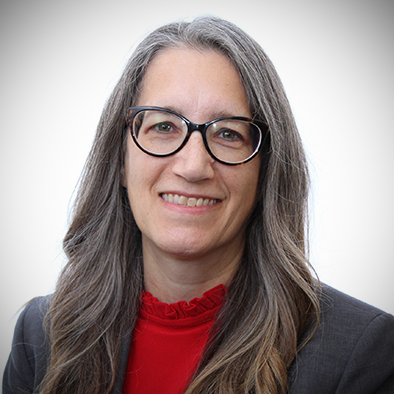
Caryn McCleskey
“Always be learning.”
Read Full Spotlight
Number of Years with SHSMD: 2
What initially drew you to the health care field?
Even though I volunteered at the local hospital in high school, I didn’t get into health care until much later. Yet over the years I found myself increasingly drawn to the health care world. I’ve always been interested in how institutions and organizations work to serve human needs. And hospitals are among the most complex and yet purpose-driven systems out there. It’s fulfilling to be part of something so mission-driven and supportive of our frontlines.
Can you share a defining moment or key experience that shaped your career path in this field?
The most defining moment for me, among many pivots that brought me into the field, was when I was offered the chance to move into a strategy role. Even though I’d been working in a behind-the-scenes capacity before coming to strategy, it felt as if a whole new world opened to me. I began to see how decisions are shaped, how priorities are set, and how strategy connects to real people and outcomes.
Which of your professional accomplishments are you most proud of, and why?
Looking back at past accomplishments, I realize a theme, and so I’m most proud of the way I’ve been able to pivot and take on diverse projects and roles, building trust across different teams, learning new skills, taking on new perspectives. My experiences have given me the ability to bring clarity and structure to increasingly complex work.
What skills or qualities do you believe have been most essential to your success in this profession?
I’ve found that being able to work well with a wide range of people, in different roles and with different perspectives, has been one of the most important parts of this work. I often find myself in project spaces where I’m helping bridge across teams, clarify what’s needed, and keep things moving. I think that ability to build trust and translate across functions makes a big difference. I also tend to think in terms of how all the pieces fit together, not just what’s happening in one project, but how it connects to other parts of the system. That mindset has helped me stay grounded in the big picture, especially when things are moving fast or feel ambiguous.
Has there been a mentor, colleague, or experience that has significantly influenced your career growth? How did they impact your journey?
One moment that significantly impacted my health care career was when I had the chance to volunteer again at my local hospital, this time in a different city and years later. The volunteer coordinator was thrilled to hear that I knew how to work with websites and introduced me to the director of fundraising, who invited me to support his work. That opportunity gave me the foot in the door I needed. When a marketing position later opened in the health system’s publishing department, he recommended me, setting in motion the transition that ultimately brought me into health care full time.
What advice would you give to someone just starting their career in your field?
Always be learning. It’s cliché for a reason – because it’s true. Approaching each new role or project or team from a place of curiosity and openness to what you can learn is so valuable. It helps you see patterns you might not otherwise see. And in health care, there’s always something new to learn. Another thing that makes it so fulfilling.
What do you think is one of the industry trends or innovations you think will have the biggest impact on your field in the next five years?
I could easily point to AI and regulatory impacts among many trends or innovations, or consumer behavior or demographic changes, all of which will have significant impacts. But maybe that’s the bigger point, there won’t be just one defining trend. It will be the convergence of multiple forces, often unfolding unpredictably, that shapes the future of healthcare. In that sense, the real innovation isn’t just about responding to individual trends, it’s about building the capacity to prepare for multiple possible futures.
What resources, connections, or opportunities provided by SHSMD have been most valuable to you?
I love attending conferences, so I always look forward to the annual conference. It’s great for inspiration, staying current on trends, and being exposed to how other organizations work on strategy. It’s always energizing and has the big picture view I value.
How has your involvement with SHSMD contributed to your professional growth and success?
SHSMD has helped me feel more connected to the broader health care strategy landscape and sharpen my professional identity as a strategist. It has also helped me differentiate the health care work from the project management work I do and see how each lens brings something valuable to the other. SHSMD has helped me approach strategy more thoughtfully and project work more strategically.
What’s one fun fact about yourself?
I had a whole career in book publishing in Washington, DC before pivoting to healthcare. It’s given me a deep love for clarity, structure, and the Oxford comma.
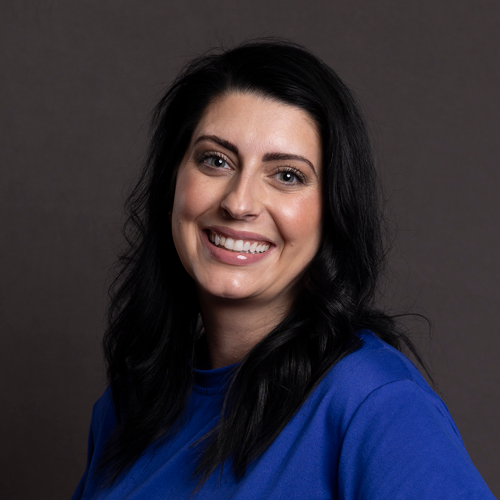
Katie Engling
“Being small is actually our superpower.”
Read Full Spotlight
What initially drew you to the health care field?
I’ve experienced health care not just as a professional, but as a patient and a parent. I’ve had a baby at this facility. I’ve held my breath next to my child’s bed in the ICU for four long days. Those moments stay with you. They gave me a deep respect for the people who show up every day to care for others. After more than a decade in education, I transitioned into health care marketing because I saw how critical it was to bridge the gap between clinical excellence and community connection, especially in rural areas like mine.
Can you share a defining moment or key experience that shaped your career path in this field?
When I first stepped into my role, our OB program was at a breaking point. We were facing the very real possibility of having to close its doors if we couldn’t turn things around. There was no big budget, no flashy agency. Just a deep belief that rural care matters—and a need to remind our community that it belongs to them. That challenge became the birthplace of our “Your Bump Belongs Here” campaign. We leaned hard into storytelling, visuals that felt human and hopeful, and messaging that spoke directly to the heart of our community. The result? We’re now projected to increase our annual birth count by 43—a 205% increase from the year prior. That experience taught me something I’ll never forget: being small is actually our superpower. Our size lets us stay close to the stories. Budgets don’t define us—connection does. When you hone in on your brand voice and anchor it in purpose, people respond. They remember. They trust. That campaign didn’t just save a program. It reshaped how I view this work, and what’s possible in rural health care.
Which of your professional accomplishments are you most proud of, and why?
As I enter into my second year of health care marketing, my proudest accomplishment has been earning the trust of both our staff and senior leadership. As a one-woman team, I’ve led employee recognition initiatives, morale-building events, and internal systems that reinforce who we are—not just as a facility, but as a team. That trust has translated into action: I’ve been appointed Team Captain for our internal awards and recognition program, asked to lead our Culture & Engagement Team, brought on a videographer to elevate our brand voice, and was entrusted with leading our upcoming website redesign. It’s not a framed certificate, but it’s a foundation. And I’m grateful every day for the trust that allows me to keep showing up and doing meaningful work.
What skills or qualities do you believe have been most essential to your success in this profession?
Storytelling, strategic thinking, and adaptability. In rural health care, resources are limited—but creativity and authenticity go a long way. I’ve learned to blend data with emotion, and strategy with heart.
Has there been a mentor, colleague, or experience that has significantly influenced your career growth? How did they impact your journey?
My boss, Anna, took a chance on me when she hired me. I didn’t come from a traditional health care marketing background—I had limited experience and an education-based career behind me. I wasn’t the “safe” choice on paper, but she saw something in me and gave me the space to grow into this role. She’s offered guidance when needed, but more importantly, she’s allowed me to fully be myself in it. For someone in marketing, having that level of creative freedom—and the trust and financial backing to bring big ideas to life—is rare. Her leadership has not only shaped my confidence but also set the tone for how I want to lead someday. More recently, I’ve also worked with a career coach who’s helped me define goals that allow me to sustain this momentum while still honoring personal priorities. That combination—external support and internal clarity—has been a game-changer for my growth.
What advice would you give to someone just starting their career in your field?
Don’t wait until you feel perfectly qualified—most of us are learning as we go. What matters most is being curious, staying humble, and listening more than you speak in the beginning. Find the people who will take a chance on you—and when they do, show up with everything you’ve got. Be bold enough to bring new ideas to the table, but grounded enough to know when to learn from the room. And finally, don’t underestimate the power of building trust. In health care marketing—especially in small or rural systems—relationships are everything. Earn that trust, and doors will open you didn’t even know were there.
What industry trends or innovations do you think will have the biggest impact in the next five years?
I think we’re going to see a major shift toward local, story-driven marketing—powered by AI efficiency. People don’t just want information—they want connection, clarity, and care. Especially in health care, where trust is everything, the brands that succeed will be the ones who show up authentically and consistently. AI and automation will help teams (especially small ones like mine) streamline content creation, data analysis, and campaign management—but the differentiator will always be the voice behind the message. The most impactful marketing will blend smart systems with deeply human storytelling.
What resources, connections, or opportunities provided by SHSMD have been most valuable to you?
The SHSMD network and annual conference have been game changers for me. I’ve met peers navigating similar challenges, learned from organizations both big and small, and walked away with ideas I could put into action immediately. It’s where I connected with our now-videographer, took workshops from a potential website vendor, and found inspiration that directly shaped my work. SHSMD has easily been one of the most valuable investments I’ve made in my career.
How has your involvement with SHSMD contributed to your professional growth and success?
SHSMD has played a pivotal role in my growth—especially as someone newer to health care marketing. It gave me a place to learn, connect, and gain confidence in my voice. From the conference to the community, SHSMD has offered practical tools and strategic insight I’ve been able to bring back and implement right away. One of the most meaningful parts of my involvement has been being selected to serve on the Education and Editorial Advisory Board. It’s been an incredible opportunity to contribute, learn from others, and help shape the conversations that are moving our field forward. SHSMD hasn’t just helped me grow—it’s helped me belong.
Fun Fact:
I own a small egg business called The Tipsy Hen House. Every carton is hand-packaged, we feature a chicken “Employee of the Month,” and all proceeds go toward renovating my maximalist, hot pink chicken coop. It’s equal parts farm-fresh and fabulous.
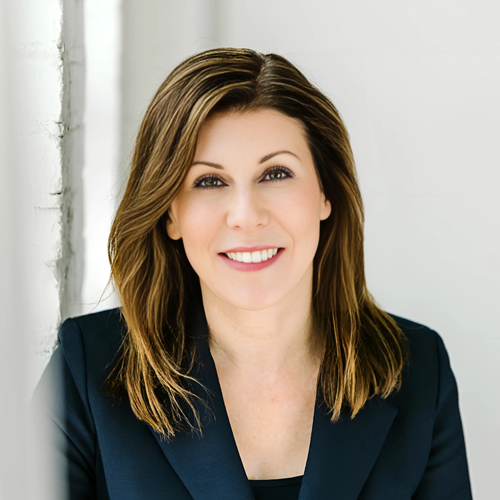
Melissa Fors Shackelford
“Marketing is a team sport that thrives on authenticity and collaboration.”
Read Full Spotlight
What initially drew you to the health care field?
I fell into health care at Optum through the technology side, actually, and found that I loved being able to make a difference in people's lives. As marketers, we can work in any industry, but being a mission-driven person, I am drawn to health care.
Can you share a defining moment or key experience that shaped your career path in this field?
I've worked on the payer, provider, pharmacy, health tech, startup, and consulting sides of health care. I think working for a provider, being closer to the actual patient, was the most impactful and rewarding for me.
Which of your professional accomplishments are you most proud of, and why?
I'm so proud of leading the brand development and launch of an iconic behavioral health care brand—Hazelden Betty Ford Foundation.
What skills or qualities do you believe have been most essential to your success in this profession?
In health care and in marketing, being a collaborative leader is imperative. Marketing is truly a team sport and serves everyone in an organization, so listening to and valuing all available voices is essential for success.
Has there been a mentor, colleague, or experience that has significantly influenced your career growth? How did they impact your journey?
I have a longtime mentor named Theresa, who has been my sounding board and source of inspiration throughout my career. She encourages me to be true to myself, to my values, and to be authentic in my communication. It's been invaluable to have someone I trust and value when I have large decisions to make. I cannot recommend enough that everyone find and utilize a mentor.
What advice would you give to someone just starting their career in your field?
Marketers can work in any industry, but for those that are seeking purpose and meaning in their career in marketing, health care is a great choice.
What industry trends or innovations do you think will have the biggest impact in the next five years?
AI is going to have a massive and transformational impact on all professions, but particularly marketing. In health care marketing, we need the benefits of AI for things like personalization at scale, but we have to balance that with being authentic enough to build trust with health care consumers.
What resources, connections, or opportunities provided by SHSMD have been most valuable to you?
I am a huge fan of Futurescan. It's important for every marketer to keep up on trends in the industry, and Futurescan as a reference tool and the accompanying webcast has always been an imperative for me and my teams.
How has your involvement with SHSMD contributed to your professional growth and success?
I've participated in just about every way I can with SHSMD—from attending the annual conference to volunteering on a committee, writing articles and blogs, being a guest on the podcast, and speaking at the conference. I continue to learn from other members in SHSMD and will continue to give back where I can.
Fun Fact:
I speak Japanese, I lived in Japan for several years, and I continue to study the language!

